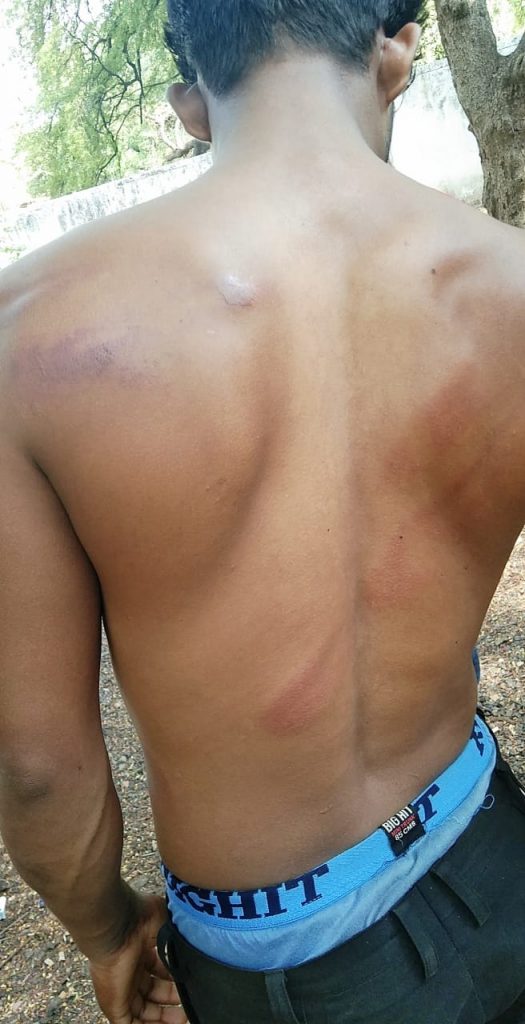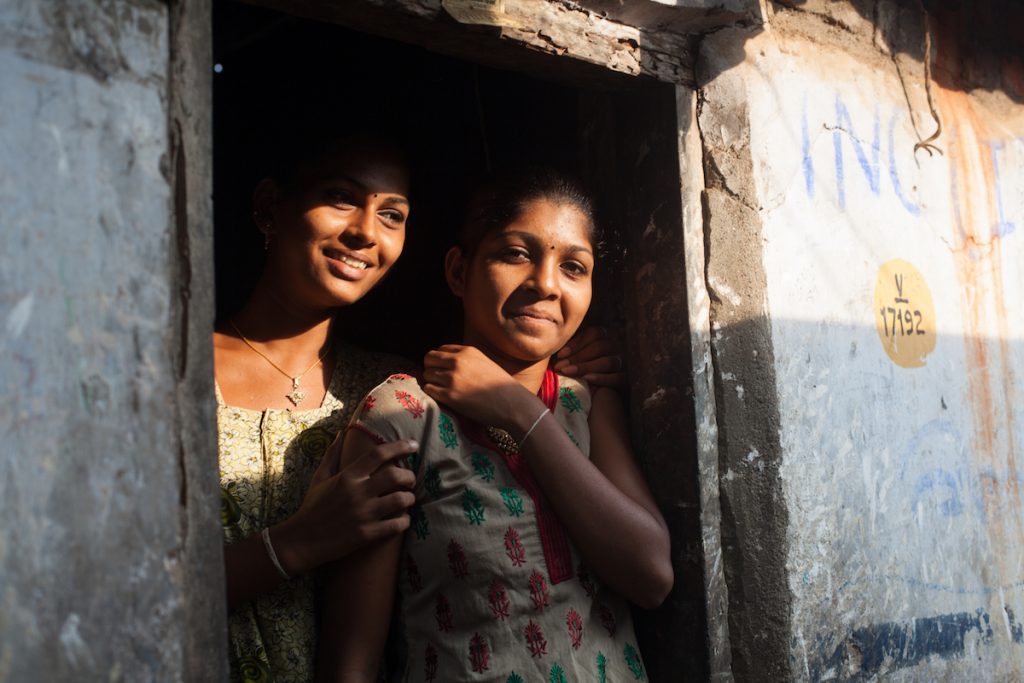Bura Singh, his wife and their young daughter were quietly conducting prayers in their home in central India when they were disrupted by police on June 7.
Some neighbors in this Hindu-dominated rural region of Madhya Pradesh had told police the Pentecostal Christian family was holding congregational prayers illegally amid the COVID-19 pandemic and were also trying to convert locals.
Headed by a town inspector the police allegedly barged their way into the house and started beating up Bura Singh and his family.
Several Christian neighbors heard the family screams and they rushed to Singh’s house and attempted to stop the police from beating the family, but police only acted more violently and beat them as well, say witnesses.
A teenager who came to the family’s rescue tried to film the police action with his mobile phone until it was confiscated.
Bura Singh, his wife, daughter and one of his neighbors were eventually arrested and thrown into a police lockup. The police registered a case against 15 Christians of the area, charging them of interrupting the work of public authority. Police have accused them of rioting and illegal assemble during the COVID-19 lockdown. If charges are proven against them, they could be sentenced to two years in prison.
Sumit Massih, a Christian advocate from Alliance Defending Freedom (ADF) who is defending Bura Singh’s case, told LiCAS.news that the highhandedness of police was completely uncalled for and was reflective of a vindictive mindset against the Christian community.
“It was ironic to find that Bura Singh’s wife and daughter were arrested by the male police constables while as it is mandatory that the women if taken into custody, must be arrested by the female police,” said Massih.
It took him five days to get the family freed on bail, he said.
“When I went to sub district magistrate to seek bail for the victims, he rejected it in an outright manner, telling me that these Christians have misbehaved with the town inspector who happens to be his friend,” Massih said.
“We had to apply for bail from a higher authority and it took us five days to get the poor family released from captivity. The case is still under trial and the family has to frequently visit courts to defend itself,” he said.

After he was released on bail, Bura Singh said he sent one of his neighbors to the police station to get the mobile phone which was confiscated by the police at the time of the incident.
“When the boy reached the police station and sought the mobile phone, he was beaten up there by the police constables again and was put under the lockup for the entire day. He was released in the evening,” Bura Singh said.
A laborer by profession, Bura Singh, belongs to the so-called Scheduled Tribe Community which are also referred to as Dalits.
In India’s age-old caste system — which is still prevalent in the majority of its regions — the Dalit community are socially stigmatized.
“What was my crime? Accepting Jesus as my Lord? I was simply praying inside my house with my family. We didn’t rob anyone or attack any person. I wonder why we were treated like criminals when we committed no crime?” asked Bura Singh.
He is not alone as people from deemed lower caste communities, especially those who practice Christianity, face a plethora of hardships in a majoritarian Hindu society.
During the first week of August, a Dalit man named Pappu Kumar, who converted to Christianity in June, was attacked by a hard-line Hindu mob. Kumar was beaten so badly with iron poles that he was in intensive care for two weeks. A relative said that the police hasn’t registered any case against the culprits so far.
Roy Mathew, a Christian activist based in New Delhi said socially disadvantaged Dalits or other so-called lower castes face discrimination on multiple fronts.
“An upper-caste Hindu wouldn’t eat from the hand of a lower caste,” Mathew said as a way of example.
“In villages, the lower castes have separate temples, separate cremation grounds and even separate wells wherefrom they could fetch water for living,” he said.
“And when this lower caste decides to abandon the faith that doesn’t even treat him as a human being and accept Christianity or some other faith as a religion, his miseries only mount.”
Mathew said that after any Dalit converts to Christianity, they face the double discrimination as being a Dalit and a Christian. They also lose government benefits soon after they convert, he said.
Dalits are traditionally assigned tasks that Hindus regard as ritually polluting. There are about 5 million full-time sanitation workers in India who are predominantly Dalit.

The Constitution of India provides special privileges for Dalits, giving them benefits such as quotas in educational institutions and reservations in jobs, but these privileges were taken away from Muslim, Sikh, Buddhist and Christian Dalits in 1950 by a presidential order stating: “no person who professes a religion different from the Hindu religion shall be deemed to be a member of a Scheduled Caste.”
In 1956 the law was amended to allow Sikh Dalits to have the same benefits that Hindu Dalits receive. The same occurred in 1990 for Buddhist Dalits yet Dalit Muslims and Dalit Christians still do not get special consideration.
Pastor Nehemiah, a Dalit activist based in India’s western city of Mumbai, said that Dalit Christians are often targeted by Hindu hardliners.
“When Dalits try to escape from centuries-old customs and seek refuge in Christianity, they are brutally ostracized in society and there are numerous cases in which they have hounded and even killed by extremist groups,” Nehemiah said.






